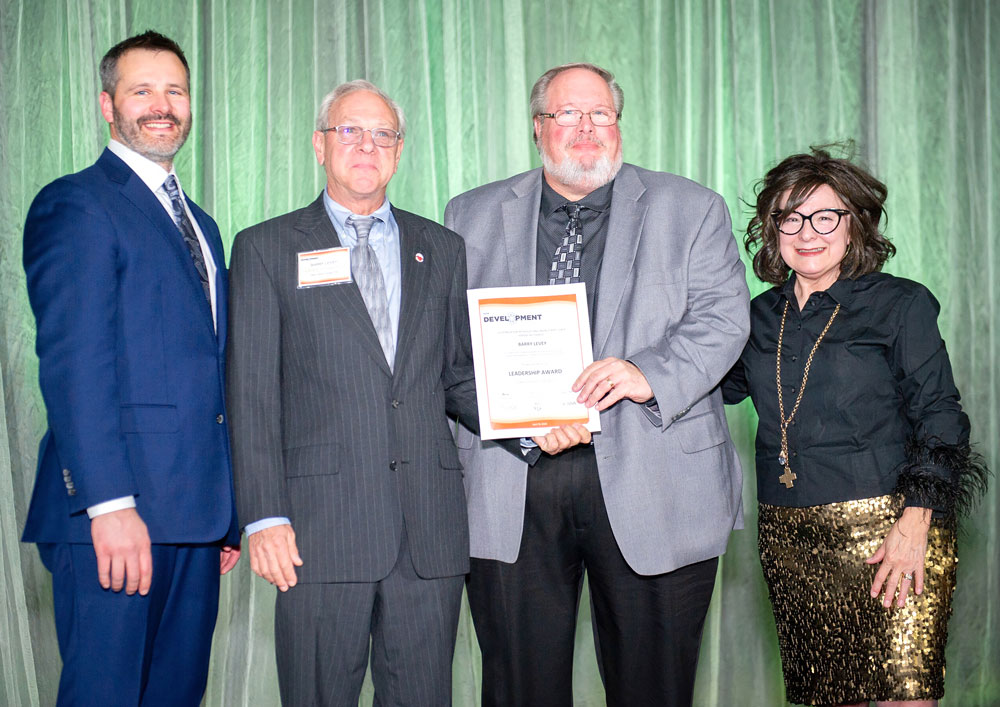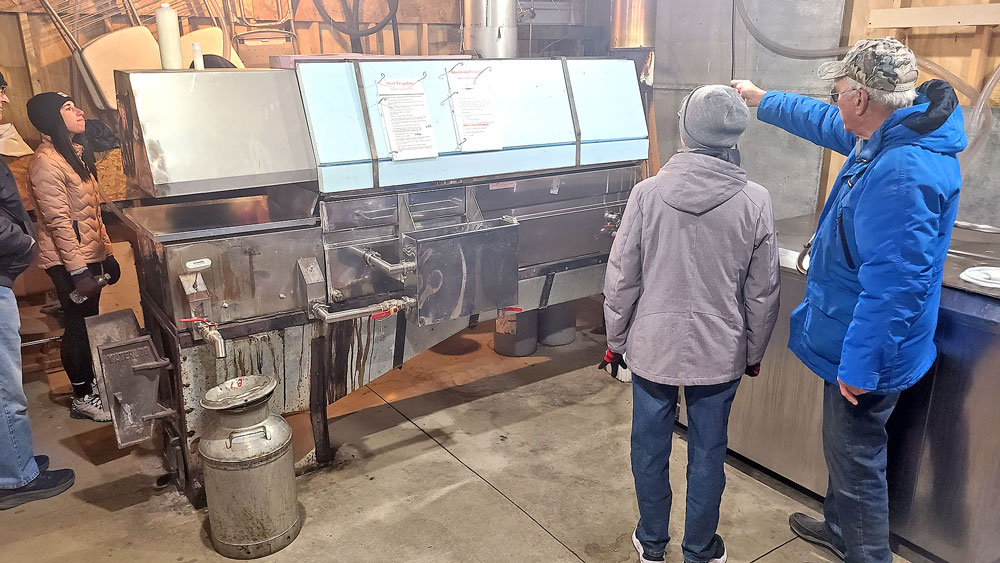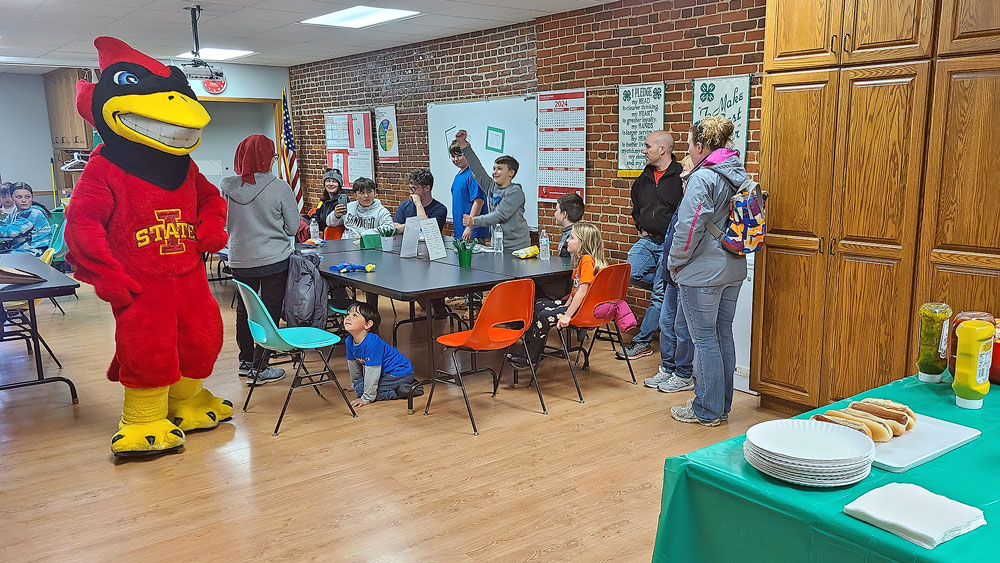3 (so far) will be on ballot for county supervisor

Modest turnout of party voters picks candidates for fall general election
By Bob Steenson, bsteenson@charlescitypress.com
Only 7 percent of registered voters in Floyd County cast ballots Tuesday in the party primary election, a contrast to statewide results that saw what is being called a record turnout.
There were 778 total ballots cast in Floyd County on Tuesday, out of 11,083 registered voters, a turnout of 7.02 percent, according to unofficial numbers from the Floyd County Auditor’s Office.
The Iowa Secretary of State’s Office said more voters turned out statewide than in any June primary in history, and women fared particularly well among the candidates.
In Floyd County, low turnout may have been tied to the lack of suspense over the results.
“It was typical for a primary where there were no locally contested races,” said Floyd County Auditor Gloria Carr, who is also county commissioner of elections.
With the number of county candidates equal to or fewer than the number of seats available for each office, all those on the party ballots were nominated to appear on the general ballot for the Nov. 6 general election.
Unofficial Floyd County office results from Tuesday are:
- County supervisor (2 seats available) — Douglas Kamm (R), 243 votes; Roy Schwickerath (D), 376; Stewart Dalton (D), 299.
- County treasurer — Frank Rottinghaus (D), 425 votes.
- County recorder — no candidates.
- County attorney — Rachel Ginbey (R), 236 votes.
County Democrats might take some satisfaction in seeing that each of the Democratic candidates for county supervisor received more votes than the Republican incumbent, Kamm, but party primary numbers do not necessarily represent what will happen in the fall.
For example, two years ago, then-incumbent Schwickerath received 246 votes to win the Democratic nomination, and his challenger, Linda Tjaden, received 224 to win the Republican spot, but in the general election Tjaden was the victor.
Part of the reason for low turnout in the party primary may be the number of registered voters in the county who do not declare a party. You must be registered with a party to vote in that party’s primary election, although voters can declare a party at the voting site.
According to the latest figures from the Auditor’s Office, there are 3,060 voters registered as Democrats and 2,799 registered as Republican, but 5,194 who do not declare a party. No-party voters represent 47 percent of the registered voters.
Carr said the election generally went smoothly Tuesday, with just a few minor computer glitches that were quickly corrected.
Carr did say that there were a number of people who were upset with the state’s new voter ID laws, including one person who berated a precinct election official over the new requirements.
State law requires that voters have state-approved identification such as a driver’s license or state-issued identification card, although the law has not fully taken effect yet and there were still ways to vote without an official ID in Tuesday’s election.
In state races, Floyd County voters generally agreed with statewide results, with Democrats voting to nominate Fred Hubbell to challenge Gov. Kim Reynolds.
Floyd County Democrats cast 284 votes for Hubbell, a total of 58 percent of the votes cast. In second place was Cathy Glasson with 76 votes for 16 percent.
Floyd County voters also agreed with state totals for the U.S. House District 4, with Republicans again giving the nod to incumbent Rep. Steve King with 206 votes or 74 percent, and 71 votes or 26 percent for Cyndi Hanson.
County Democrats favored J.D. Scholten to challenge King in the fall, giving Scholten 252 or 54 percent of the vote. Coming in second for the Democratic nomination was Leann Jacobsen, with 170 votes or 36 percent. Scholten was also the statewide choice to run against King in the fall.
Iowa Democrats see hope in nominees for governor, US House
DES MOINES (AP) — After nearly a decade of declining support in Iowa, Democrats were hoping to capitalize on the primary night results and take the first step toward regaining some strength in what once was a swing state.
Among the nominees party voters selected Tuesday were two successful women to challenge Republican congressmen in what could be competitive fall campaigns as Democrats attempt to win back control of the U.S. House.
However, it was wealthy businessman Fred Hubbell who will try for the state’s biggest prize — a chance for Democrats to wrest away the governor’s office from Republican Kim Reynolds. She stepped into the office by succession and in November will try to become the first woman elected to the post.
He easily cleared the 35 percent threshold needed to avoid a Democratic state convention. He defeated nurse and union local president Cathy Glasson of Coralville; physician and former party chairwoman Andy McGuire of Des Moines; aide to former Gov. Tom Vilsack and former Democratic Party state chairman John Norris of Des Moines; and former Iowa City Mayor Ross Wilburn.
Reynolds immediately criticized Hubbell, who comes from a wealthy Des Moines family, for providing millions of dollars to his own campaign. She’s a two-term lieutenant governor, who took the top job when Gov. Terry Branstad became ambassador to China.
The secretary of state’s office said more voters turned out than in any June primary in history, and women fared particularly well. Among them were state Rep. Abby Finkenauer, who at 28 could become the youngest woman ever elected to the U.S. House if she’s able to unseat Rep. Rod Blum in November in northeast Iowa’s 1st Congressional District.
Blum was running unopposed. He’s considered vulnerable in November in a district where active Democrats outnumber Republicans by more than 16,000 voters.
West Des Moines businesswoman Cindy Axne also will appear on the general election ballot after her primary victory in the 3rd District in the southwestern part of the state, moving on to take on two-term Republican David Young. Axne won a three-way primary and could present a strong challenge to Young.
The primary also featured a victory by Des Moines businesswoman Diedre DeJear in the Democratic primary for secretary of state, making her the first African American to win a major party nomination for statewide office. DeJear worked as Iowa African-American vote director for Barack Obama’s 2012 presidential campaign.
Democrats also nominated Sioux City paralegal J.D. Scholten, a former minor league baseball player, to run in northwest Iowa’s 4th District against longtime GOP Rep. Steve King.
King easily won his primary as he seeks his ninth term representing the sprawling district that stretches over 39 counties in northwestern and northern Iowa.
Secretary of Agriculture Mike Naig was leading against four other Republicans but the race was still too close to call early Wednesday. Naig’s vote total remained just under 35 percent, which means the race may go to a party convention.
In an Iowa primary, candidates must pass a 35 percent threshold of votes or a convention is called and a nominee is selected by party leaders.









Social Share